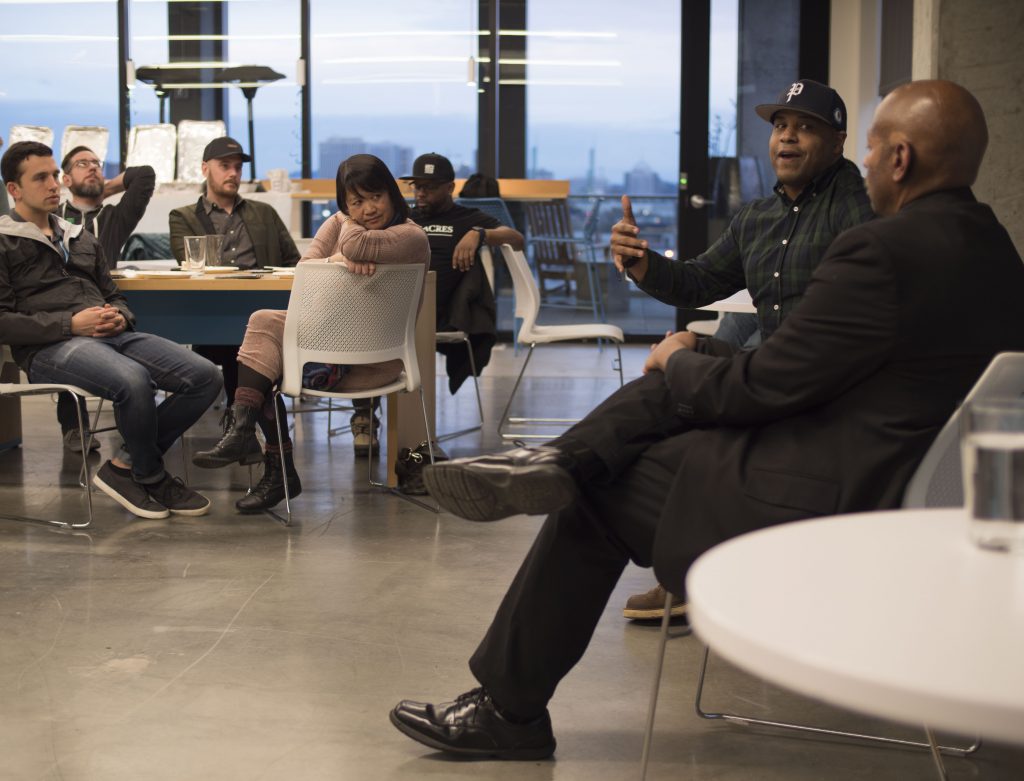“Every morning, I see her walk from their shop – past Cork Coffee Roasters – to Starbucks and return with a tray of coffee for her team.” my sister explains to me as we ourselves sip coffee at Cocoalatte in Toronto. “Think about it. That easily eight euros (USD 10) a day that go to a large corporation instead of a local small business. Every day.” My sister and her husband own a thriving small business in downtown Cork, Ireland, and know the pressure that comes with trying to strike out on your own and competing against corporate franchises.
Having moved internationally a lot over the last fourteen years, I have developed a keen sense for what makes a place THAT place – what makes it lovable and unique. And more often than not, that identify is influenced by the shop windows on main street.
Proud to be local
Earlier this year, I sat in a room with local heroes that made me feel like I needed to move to their city. RIGHT.THAT. MINUTE. At the Startup Champions Spring Summit in Portland, Oregon, hosted by PIE, Rick Turoczy had invited Mitch Daugherty (Built Oregon), Paula Hayes (Hue Noir Cosmetics), Chris Bailey (Mercado), Kate Delhagen (Oregon Sports Angels) and Shannon Oliver (Red Duck Foods) to share their experiences of running, accelerating or investing in local product-based businesses in the Pacific Northwest.
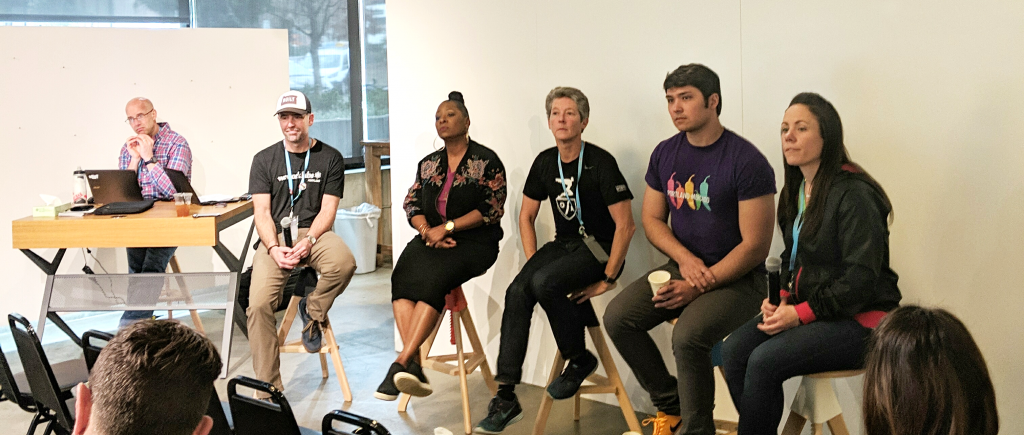
“We are six years in, our products are sold in 5,000 stores, and investors still say we’re too risky.They’d rather pour a million into a medical device startup that takes ten years to get to market, if it does at all.” said Shannon Oliver, founder of Red Duck Foods, an organic sauce and organic condiment company and Certified B Corp.
Paula Hayes chimed in “I had to walk away from different investors because they wanted a two- to three-year return and as a product-based business, that’s just not how it works.”
Each panelist shared at least one story of unnecessary disappointment, superfluous hardship or lack of support.
And yet. Each panelist also spoke with sincere pride of having built their companies in the place that their families, friends and neighbors lived and had grown up in. Shannon explained:
We want to be successful enough to invest in minority-owned businesses. We learned from people and companies that were gracious to help and share their experiences with us. We want to return that favor.
Each of them would give back in their own way: through mentoring and investing in local startups; hiring and training local talent, supporting their local community where possible. They were hell-bent on reducing barriers for the next generation to avoid the same struggles hurdles they themselves had experienced. When we talk about ecosystem building, a culture of local pride and deep dedication to seeing your community thrive is the secret ingredient that separates thriving communities from those who don’t. This type of champion might just be about the best thing that could happen to any local economy.
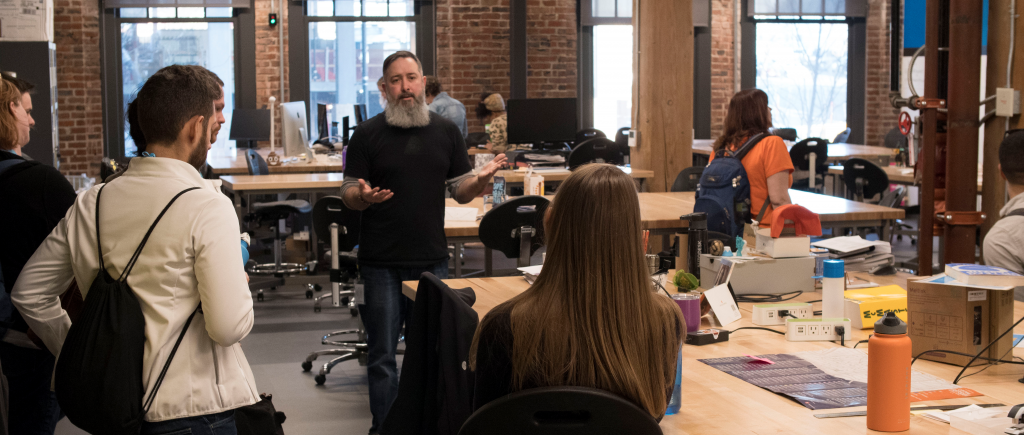
The 99.7 percent
Obviously, not all of us can or should be entrepreneurs. In fact, each month, three out of a thousand Americans start a new business. Which leaves 99.7% of us with a crucial role to play: you guessed it, to help these 0.3% thrive.
What are your favorite small local businesses? Can you think of anything easier or more fun than to find ways to support these companies? What if I told you that advocating for your local ecosystem might be just about the easiest first step to becoming an ecosystem builder? All you need is a sense of curiosity and a willingness to celebrate all that makes your entrepreneurial community YOUR entrepreneurial community.
#Shoplocal RVA
During the three and a half years that I lived in Richmond, VA, I became an avid supporter of Belle Isle Moonshine, Sugar & Twine and Lamplighter Coffee Roasters. (You have just met my three vices: craft liquor, baked goods and caffeine. Let’s keep that between us, ok?).
Belle Isle Moonshine is a Richmond-based startup that sells a premium liquor product. I had the pleasure to meet two of the founders and learn about the Why of the company on several occasions. They agreed to speak to our cohorts of fledgling entrepreneurs at Unreasonable Lab VA and Co.Starters RVA. The company seeks out collaborations with other local businesses and shows up on the cocktail list of my favorite bars throughout the city. They happily and generously sponsor local events like Rebelle Con and bring their best swag game. In short, they are part of the entrepreneurial community and give when they can. Why would I NOT become a Belle Isle Brand Ambassador for Life?
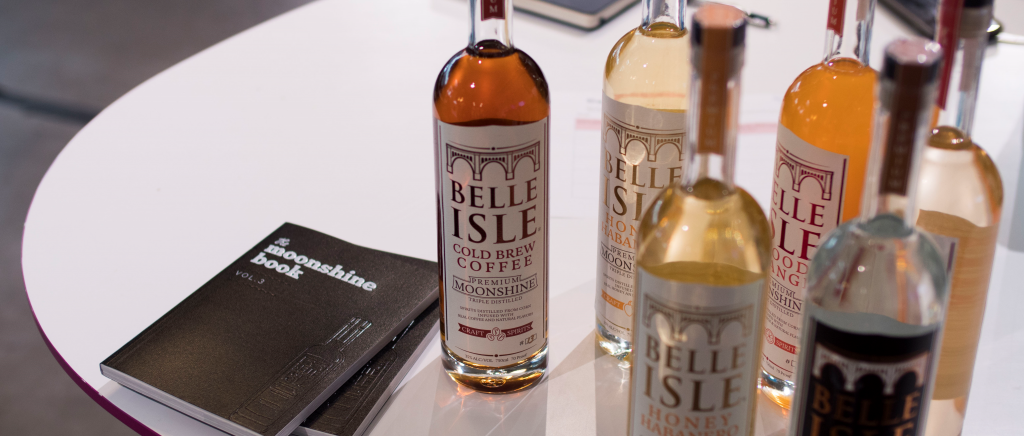
The story is a similar one for many other local businesses in Richmond. It was generally easy to meet the founders, learn more about the company, their products and services – and fall helplessly in love with the business. Coffee shops, consignment stores, ramen restaurants, co-working spaces, barber shops (I don’t even frequent a barber!), farmers markets, t-shirt companies, wellness businesses, the list is endless.
Your community, too, is home to local businesses that often do their best to source locally, to collaborate with other local entrepreneurs and are often happy – and more likely – to support initiatives that benefit your – and thereby their – parks, schools, neighborhoods and so on. What’s not to like?
Where you buy your mocha. Portland, Oregon.
I shared a draft of this post with Rick Turoczy and he suggested I watch Stephen Green’s TedX Portland Talk (which made this entire post seem redundant but here it is). I recommend you go watch the entire talk, I’ll wait. Here are a few of the highlights that really resonated:
“Portland is a small business town. Home to a nonprofit brew pub, a professional snuggler and where berries, barbecue and baked beans are a flavor of ice cream. In fact, 83% of businesses in Portland have fewer than 10 employees. Small is who we are. These small businesses have become the identity of our cities, they are the landmarks we use to describe our neighborhoods, they are where we spend our most precious moments. They are the original social network. […]
You spending your money is really important. But where you spend it may be the biggest thing of all.
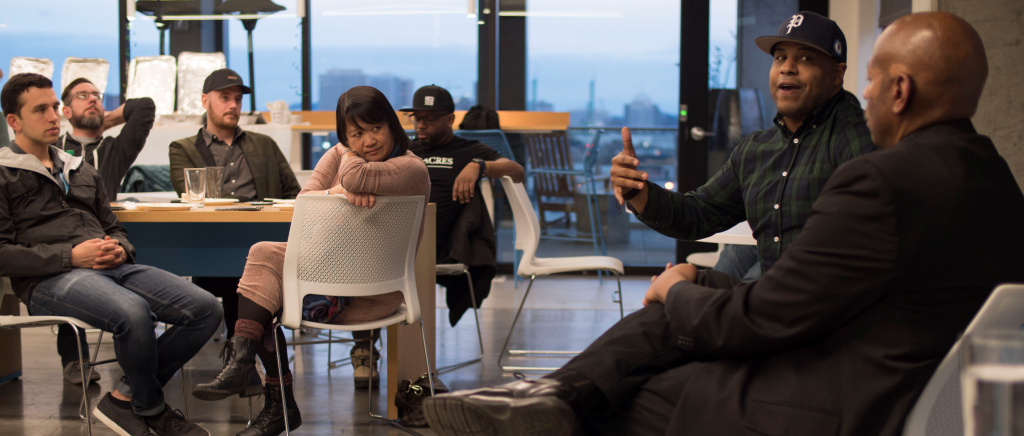
When you buy your morning mocha at Starbucks, roughly 10 cents of each dollar stays in town. The rest goes off to other parts of the country and the world. But when you buy that same mocha at a local coffee shop, almost 50 cents of each dollar stays in town going to a marketing consultant, book keeper or architect. I just want you to realize the power that your money has and the impact you have in your own city just from walking in a different door.
When you invest small, you invest in the wellbeing of the community. And when you invest in the wellbeing of your community, you ultimately invest in your own health and strengthening the fabric of your city.”
Didn’t I promise you goosebumps?! Now go watch the entire talk!
How exactly do you champion?
Buy products and services from small local business. Vote with your dollars/euros/yen.
Tell your friends about them.
Give their products as gifts.
Show them some love on social media.
The next time you help organize an event (team lunch at work? happy hour?) or recruit a service provider (cleaning, office management, support services, etc.) pick a local business over your convenient go-to corporate franchise.
Lucky for you, the Kauffman Foundation put together a little cheat sheet with 25 ways in which you can support a local entrepreneur (apart from drinking their moonshine and eating their biscuits though that goes a long way if you commit yourself to the cause).
Once you’re done reading this post, make a list of all your favorite local small businesses. Find out what led to them being founded. Meet the entrepreneur behind the business if you can. Find out why they love the place you call home! If nothing else, next time you are about to shop for something, consider yourself which door you walk into.
Because here’s the thing: These courageous entrepreneurs put themselves on the line every day (including their wellbeing, family lives, savings accounts, income security etc.) to provide us with products and services that make our lives better. They could have moved to a community that invests more in startups and celebrates scale over local pride (ehem… Silicon Valley?!). And they could have never started that business in the first place. The fact that they are still in your town or city means they are committed to seeing it thrive. The least we can do is cheer them on and support their efforts by being a little more mindful and a lot more excited about our local brands!
Dive deeper:
I can: Learn more about why supporting local small businesses is awesome. Thank you Kauffman Foundation!
Cheat More. Stephen Green, TedX Portland
How 997 people can make America great again, Victor Hwang at TedX Augusta
Anika Lives: Find out how I celebrate local small businesses. And what’s for dinner.
